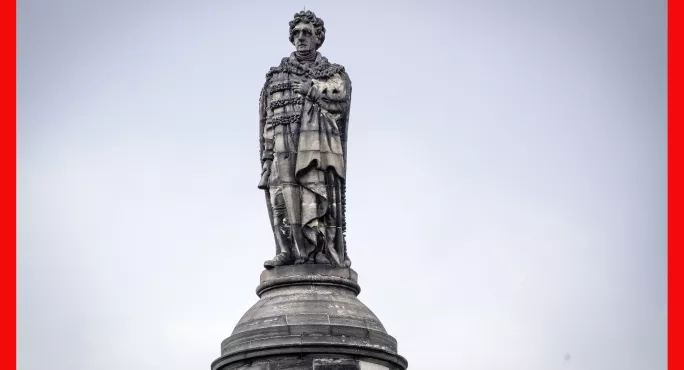A new survey of teachers in Scotland, released to coincide with Black History Month, has revealed that only a minority of secondary schools feature black history in lessons.
The University of Stirling’s Dr Joseph Smith led analysis of the Scottish data from the Historical Association’s UK-wide survey of history teachers. The survey invited history teachers at Scottish schools to comment on the contents of their curricula; 76 teachers from 70 schools responded, which represents a fifth of Scottish secondary schools.
The survey found that almost two-thirds (64 per cent) of Scottish schools do not teach students about the British Empire in history lessons during the compulsory phase of schooling, while over a third (37 per cent) do not feature the transatlantic slave trade.
History: 3 ways we can improve teaching about the slave trade
Scottish government: We will improve in teaching black history
Opinion: ‘Antiracist action must involve curriculum reform’
Comment: Why must we wait for racial equity progress in schools?
Listen: My mum was a pioneering BAME teacher in the 1970s
It is the first time that data of this kind has been collected from Scottish schools.
Dr Smith, an education lecturer, said: “The statistics uncovered by this research are stark. The full history of Scotland, or Britain, cannot be told without understanding the British Empire and the role Scotland played in the slave trade. Without knowledge of these darker moments in our history, we cannot fully understand our country’s place in the world or the way we live today.
“A big strength of Curriculum for Excellence is that it lets schools choose what to teach their pupils, but it also makes it difficult to know what is actually going on inside schools. This research is the first time we have collected robust data about what is being taught in history lessons.
“The history curriculum will always be a source of debate over whose stories we tell and how - that’s how it should be - but knowing what is happening now is a vital first step in having that conversation in an informed way.”
Two-thirds of schools said that they had made some changes to their curriculum in the past three years to make it more inclusive, but lack of time, lack of money, and difficulty accessing high-quality resources were given as major obstacles to going further.
Just three of the 70 schools involved in the survey said that they had recently made “considerable” changes to the curriculum to make it more inclusive.
The data also revealed that only 17 per cent of Scottish secondary schools teach about the black British experience, and while a third reported teaching migration in some form, only three schools were found to teach about migration from former British colonies.
Dr Smith said: “Black history has a greater presence in the senior phase of the Scottish curriculum but there remains an emphasis on slavery and the US civil rights movement. This focus on two traumatic periods risks creating the impression that racism has somehow gone away, or that it was something that happened elsewhere.”
He said that a “truly inclusive curriculum” would emphasise the experience of black British people and “the way in which we wrestle with the legacy of empire today”.
Teachers were asked to provide information on their history curriculum by completing the 2021 Historical Association Survey of History in Secondary Schools. The survey has run for more than 10 years in England under the leadership of Dr Katharine Burn of the University of Oxford and the University of Reading’s Professor Richard Harris. Dr Smith led engagement with the Scottish Association of Teachers of History to improve engagement north of the border.
The survey was targeted at secondary teachers working in schools or colleges catering for students in the 11-18 age range. It was launched in May 2021 and ran until the end of July 2021.
Responses were received from 76 history teachers in Scotland, working in 70 different schools, which represents input from 20 per cent of all high schools in Scotland.





